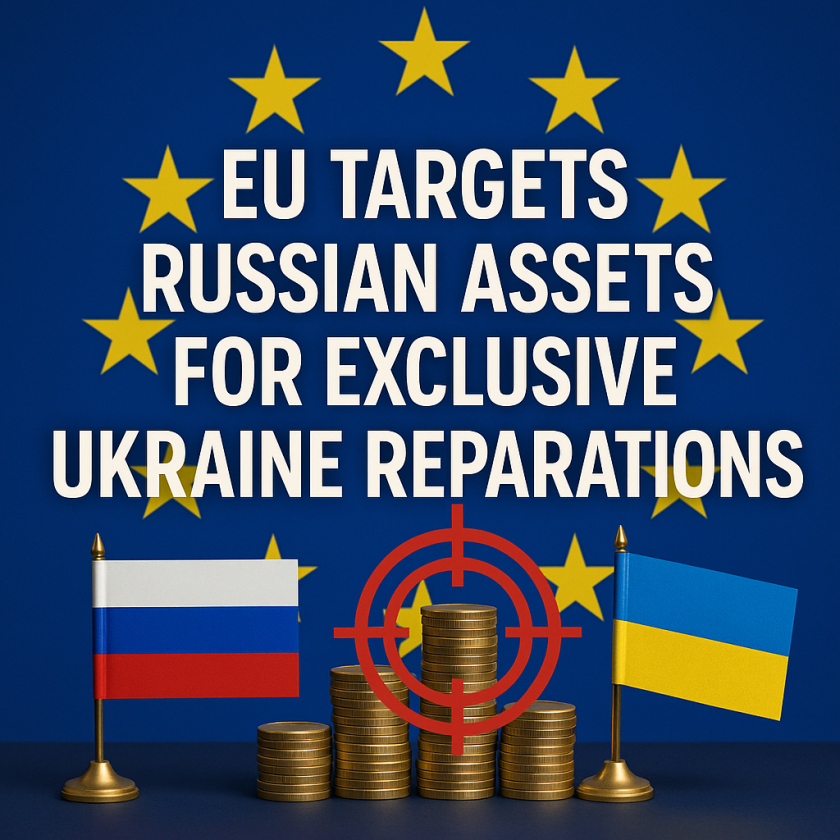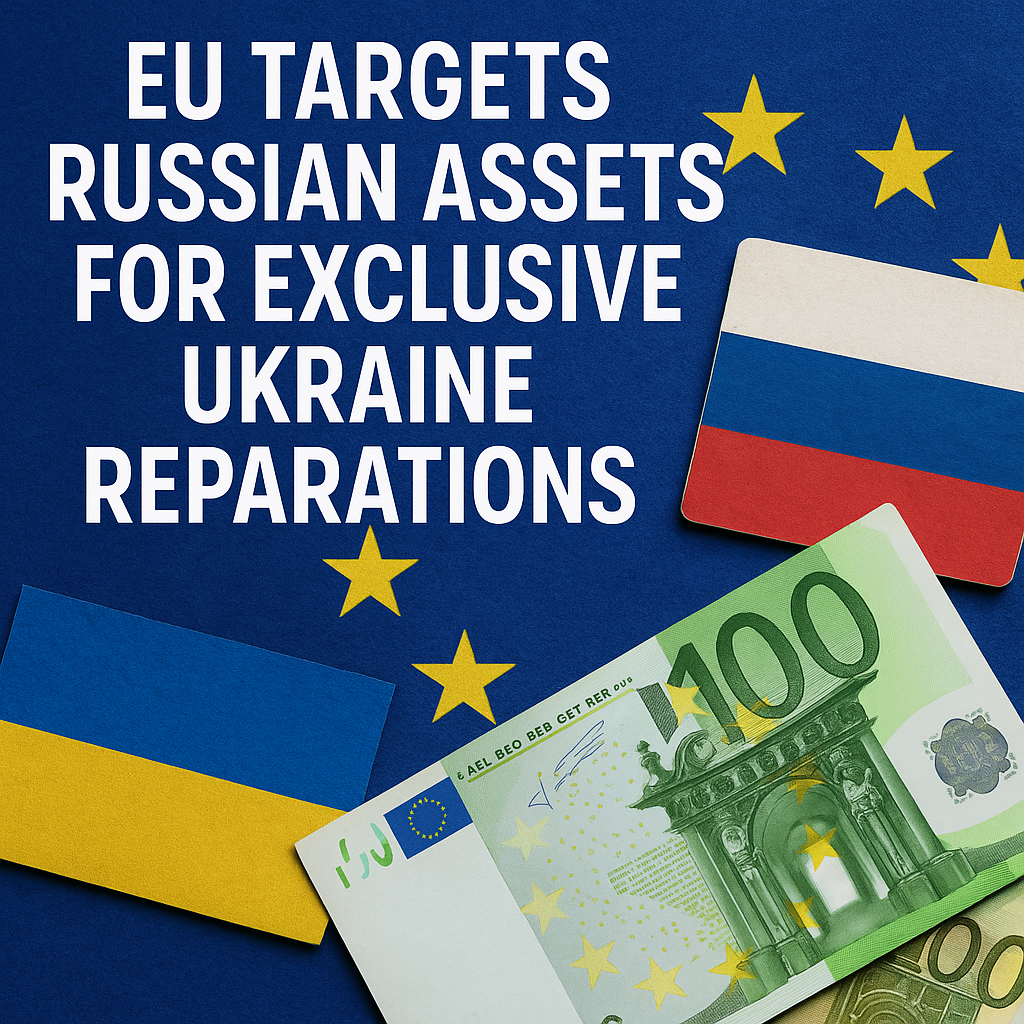EU Targets Russian Assets for Exclusive Ukraine Reparations
EU Targets Russian Assets for Exclusive Ukraine Reparations
The European Union (EU) is intensifying its efforts to address the ongoing conflict in Ukraine by targeting Russian assets for reparations. This strategic move has sparked a complex discussion among various stakeholders regarding its legality, potential effectiveness, and ethical implications.
The Rationale Behind Targeting Russian Assets

One of the primary motivations for the EU’s push to seize Russian assets is the significant cost of reconstruction and recovery in Ukraine, which is estimated to run into hundreds of billions of euros. As reported by multiple outlets, including Al Jazeera, the EU’s stance is rooted not only in the urgency of addressing the humanitarian crisis but also in holding the Russian government accountable for its actions. These reparations are intended to provide a tangible means of restitution for both damages experienced by the Ukrainian state and the suffering endured by its citizens.
However, critics question the legality of such measures. Legal experts have pointed out potential complications arising from international law, especially regarding property rights and sovereignty. Various voices in the media, including coverage from RT, have highlighted the need for a robust legal framework to justify asset seizures, emphasizing that any move to repurpose these funds must align with international standards to avoid further complications in diplomatic relations.
Diverse Perspectives on Legitimacy and Ethical Concerns
The question of whether the EU’s approach to seizing Russian assets is ethically justified remains a point of contention. Proponents argue that using frozen assets for reconstruction in Ukraine is a moral imperative, given the scale of destruction and suffering. They stress that if the EU is to support Ukraine’s recovery, it must leverage every available resource, especially those derived directly from the aggressor nation.
Conversely, opponents caution against the implications of this tactic. Critics from various news sources, including Sky News, assert that targeting assets without following due process may set a dangerous precedent. Such actions could undermine international trust and cooperation, raising concerns about the rule of law in geopolitical contexts. They fear that this might evoke retaliatory actions from Russia or other nations, complicating future diplomatic efforts and negotiations.
The Financial Landscape: Scope and Impact
Delving deeper into the financial aspects, recent estimates suggest that Russia has approximately €300 billion in frozen assets across Europe. Many EU member states are set to play a crucial role in determining how these funds can be utilized for Ukraine, as differing national laws and regulations could affect the approach taken.
Additionally, it is essential to consider the message being sent to the international community. By taking decisive action to fund Ukraine’s reconstruction, the EU signals solidarity with Ukraine while implicitly criticizing Russia’s aggressive tactics. However, this stance risks alienating nations that may view such a move as a breach of international norms.
Moving Forward: A Complex Path Ahead
As the EU navigates the complexities surrounding Russian asset seizure for reparations, it must balance immediate humanitarian needs with long-term implications for international law and relations. The discussion is not merely about the financial compensation Ukraine deserves; it encapsulates broader questions of justice, legality, and ethics on the world stage.
Stakeholders are left contemplating the next steps. Will the EU find a suitable legal framework to proceed without international backlash? Can the union mobilize a consensus among member states to adopt a unified approach? The situation remains fluid, underscoring that while the EU has taken a bold step, the path ahead is laden with uncertainties.
Ultimately, there is no clear consensus on the effectiveness or legality of targeting Russian assets for reparations, and ongoing debates will shape the discourse in the months to come. As events unfold, it will be critical for the EU to remain transparent in its actions, ensuring that they align with both ethical considerations and established international laws.






































